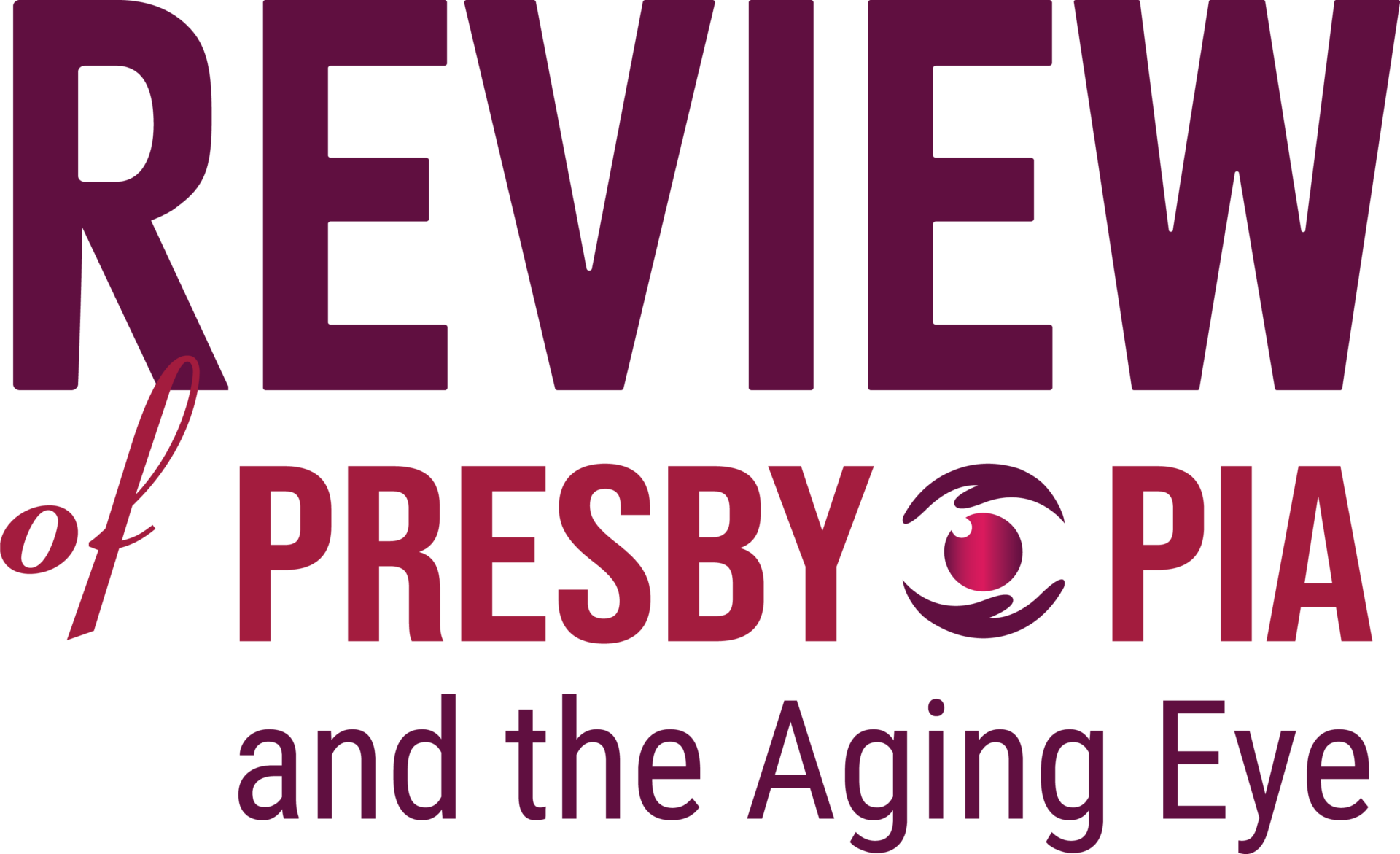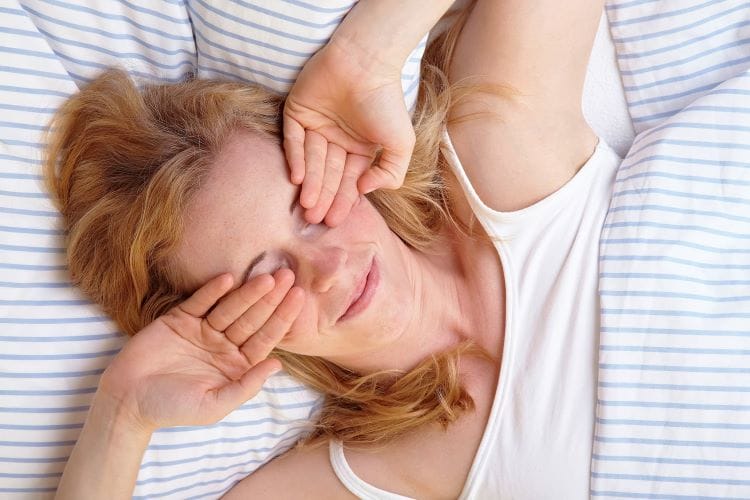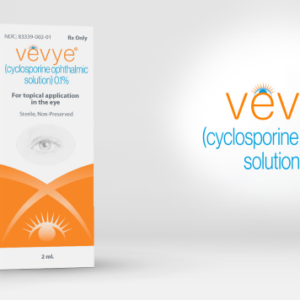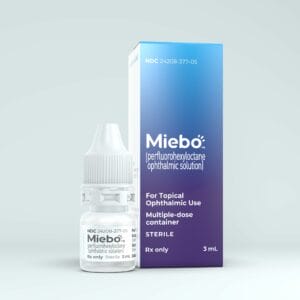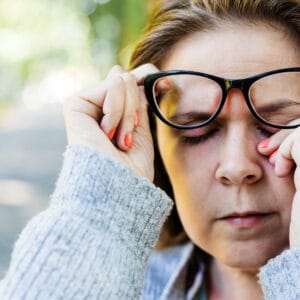August 17, 2023
We are all aware of the importance of sleep and how it affects daily life, including dry eye disease (DED). A substantial 40% of American adults get fewer than seven hours of sleep per night, the nightly minimum recommended by the American Academy of Sleep Medicine and the National Sleep Foundation.1 Men get less sleep than women, and as many as 70 million Americans may not obtain enough sleep.1 As we age, adults may sleep less due to a decrease in the production and secretion of melatonin, environmental changes, or medical and psychiatric problems that may alter nighttime sleep.2
Sleep and Its Relationship to Dry Eye
There is mounting evidence that a poor lifestyle is an important risk factor for DED, and the importance of obtaining a restful night’s sleep is no exception.3 Sleep is a physiological process that affects multiple bodily functions to affect immune, metabolic, aging, psychiatric, and cardiovascular metrics.4
In a meta-analysis and systematic review of 19 articles, individuals with DED exhibit worse sleep quality when compared with controls.5 Further, they tend to spend a smaller amount of time asleep, have more frequent sleep disturbances, and they can have increased incidence, prevalence, and severity of sleep disorders.5 In another systematic review of individuals with primary Sjögren’s disease compared to controls, there was an increase in sleep disturbances and more frequent night awakenings and pre-existing obstructive sleep apnea.6
In a mouse model, the connection between sleep and DED has been well studied. After 10 days of sleep deprivation, epithelial disruption, lipid accumulation, microvilli morphologic changes, and decreased tear production were observed.7 The changes were reversed after resting for 14 days after sleep deprivation.8
What is the Explanation for Sleep Disorders in our Dry Eye Patients?
A large, population-based study found sleep quality to be substantially reduced in dry eye patients of all demographics.9 Additionally, highly symptomatic dry eye was more strongly associated with sleep quality than just a clinical diagnosis of dry eye, and similarly there was a clear increase in prevalence of poor quality of sleep with increasing frequency of ocular dryness and irritation.
The direct connection between sleep disorders and DED has yet to be explained, but several theories offer etiologies. One theory links the relationship between sleep and depression and depression and dry eye. Several studies have demonstrated an association between the severity of sleep disorders, depression, and DED.10 Another theory is that pain associated with DED may affect sleep. The influence of pain on sleep is well established, and a low threshold of pain is linked to sleep disorders. Finally, nocturnal exposure may lead to poor sleep difficulty.
Treatment Options for Better Sleep and Less Dry Eye
So what can we as eye doctors recommend to help our patients get better sleep? While it may be challenging to prevent sleep disorders, especially among aging populations, it is possible to refrain from using devices before bedtime. Research shows that one to two hours of screen time in the evening can significantly disturb the crucial melatonin flow necessary for initiating sleep.11,12 Recommending that patients turn off devices two hours before bed can help initiate the sleep cycle needed to rest.
In an effort to prevent patients from waking with dry eyes, be sure to assess the lid position and rule out incomplete lid seal and nocturnal lagophthalmos. Simple treatments to alleviate the symptoms from this lid posture can be the use of gel or ointments before bed or sleep goggles and lid tape in more severe cases. Suggesting patients turn fans off at night or at minimum direct the airflow away from them can help reduce tear evaporation from exposure. The same treatments can help patients with sleep apnea that use CPAP machines, a prevalent contributor to DED.
In individuals dealing with dry eye, inadequate sleep quality presents a significant concern, but treating a patient’s DED can yield a dual impact. Studies have shown that patients with newly diagnosed DED exhibited a greater improvement in sleep after DED treatment compared with patients with established DED.13 Given that numerous studies have associated that patients with DED have poorer sleep and that patients with sleep disorders are more likely to have DED, it is important to engage in conversations about sleep habits with our patients.
References
1 Jaffee M . Why are we so sleep deprived, and why does it matter?. The Conversation.
2 Sleep and Growing Older. American Academy of Sleep Medicine
3 Li A, Zhang X, Guo Y, Wang J, Hao Y, Gu Y, Jie Y. The Association Between Dry Eye and Sleep Disorders: The Evidence and Possible Mechanisms. Nat Sci Sleep. 2022 Dec 15;14:2203-2212. doi: 10.2147/NSS.S378751. PMID: 36545475; PMCID: PMC9762265.
4 Galor A, Britten-Jones AC, Feng Y, Ferrari G, Goldblum D, Gupta PK, Merayo-Lloves J, Na KS, Naroo SA, Nichols KK, Rocha EM, Tong L, Wang MTM, Craig JP. TFOS Lifestyle: Impact of lifestyle challenges on the ocular surface. Ocul Surf. 2023 Apr 11;28:262-303. doi: 10.1016/j.jtos.2023.04.008. Epub ahead of print. PMID: 37054911.
5 Merikanto I, Kortesoja L, Benedict C, Chung F, Cedernaes J, Espie CA, et al. Evening-types show highest increase of sleep and mental health problems during the COVID-19 pandemic – multinational study on 19,267 adults. Sleep; 2021.
6 Luyster FS, Choi J, Yeh C-H, Imes CC, Johansson AEE, Chasens ER. Screening and evaluation tools for sleep disorders in older adults. Appl Nurs Res 2015;28: 334–40.
7 Farrar JT, Kuklinski EJ, Shtein RM, Asbell PA, et al. Ocular discomfort and quality of life among patients in the dry eye assessment and management study. Cornea 2021;40:869–76.
8 Galor A, Seiden BE, Park JJ, Feuer WJ, McClellan AL, Felix ER, et al. The association of dry eye symptom severity and comorbid insomnia in US veterans. Eye Contact Lens 2018;44(Suppl 1):S118–24.
9 Ayaki M, Toda I, Tachi N, Negishi K, Tsubota K. Preliminary report of improved sleep quality in patients with dry eye disease after initiation of topical therapy. Neuropsychiatr Dis Treat. 2016 Feb 16;12:329-37. doi: 10.2147/NDT.S94648. PMID: 26937189; PMCID: PMC4762466.
10 Ayaki M, Tsubota K, Kawashima M, et al. Sleep Disorders are a Prevalent and Serious Comorbidity in Dry Eye. Invest Ophthalmol Vis Sci. 2018 Nov 1;59(14):DES143-DES150. doi: 10.1167/iovs.17-23467. PMID: 30481819.
11 Van den Bulck J. Television viewing, computer game playing, and Internet use and self-reported time to bed and time out of bed in secondary-school children. Sleep. 2004;27:101–104.
12 Owens J, et al. Television-viewing habits and sleep disturbance in school children. Pediatrics. 1999;104:e27.
13 Magno MS, Utheim TP, Snieder H, Hammond CJ, Vehof J. The relationship between dry eye and sleep quality. Ocul Surf. 2021 Apr;20:13-19. doi: 10.1016/j.jtos.2020.12.009. Epub 2021 Jan 6. PMID: 33421635.
Getty Images
